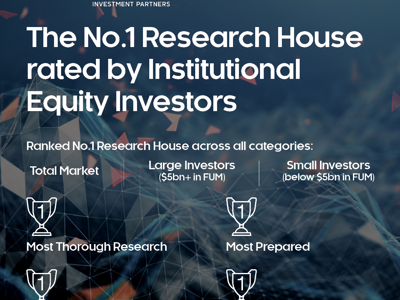Zenith Investment Partners has completed the full rollout of its responsible investment (RI) classifications across 878 funds on Zenith’s Approved Product List (APL).
The RI classifications comprise traditional, aware, integrated, thematic, and impact, with each category designating the extent of each fund’s incorporation of RI factors.
Dugald Higgins, head of real assets and listed strategies and chair of Zenith’s Responsible Investment Committee, said the RI classification rollout provides advisers with an additional tool to differentiate between funds, and identify those best suited to clients seeking to add environmental, social and governance (ESG) sensitivity to their portfolios.
“Each category has varying levels of ESG factor consideration within its investment process. Importantly, the classifications go beyond simply identifying which ESG strategies a fund uses, which is essential given many funds combine more than one approach. Instead, the classifications have been applied across all asset classes which allows advisers to identify the level to which any fund incorporates ESG, and not just those funds branded as pursuing responsible, ethical or sustainability aims,” said Higgins.
The Zenith research team also uses detailed qualitative analysis, rather than relying on manager self-assessment questionnaires. Combined with its access to each fund’s portfolio holdings during the review process, this provides a high level of investigative rigour. It also allows the consultant to examine the robustness of each funds process and test managers to ensure that activity matches any policy guidelines.
Higgins said the Zenith process has shown which sectors tend to prioritise RI and ESG over others.
“Among Zenith-rated funds, listed property and infrastructure as well as unlisted real assets have the largest proportion of funds classed as ‘Integrated’, meaning they expressly take into consideration RI and ESG factors. While Australian and international shares funds did have a large number of funds incorporating RI and ESG factors, just over half of the universe incorporated ESG.
“We feel that is a logical outcome of the process given real estate and infrastructure assets have a long history of incorporating E, S, and G issues, particularly around sustainability.”
Higgins said the classifications are best used as a way to help clients focus on funds where ESG sensitivity is a priority, and when combined with Zenith’s existing fund data on exclusions around controversial industries, helps create a powerful set of tools for advisers.
“These tools are becoming more vital as investor attitudes change and regulations increase, as we’re seeing with the recent announcement that ASIC is conducting a review to establish whether funds focusing on ESG considerations are aligning with the way they’re being sold,” Higgins concluded.
Zenith’s RI Classifications are now available to all subscribers in its Product Assessment Reports, sector reports and via its Mosaic portal.






